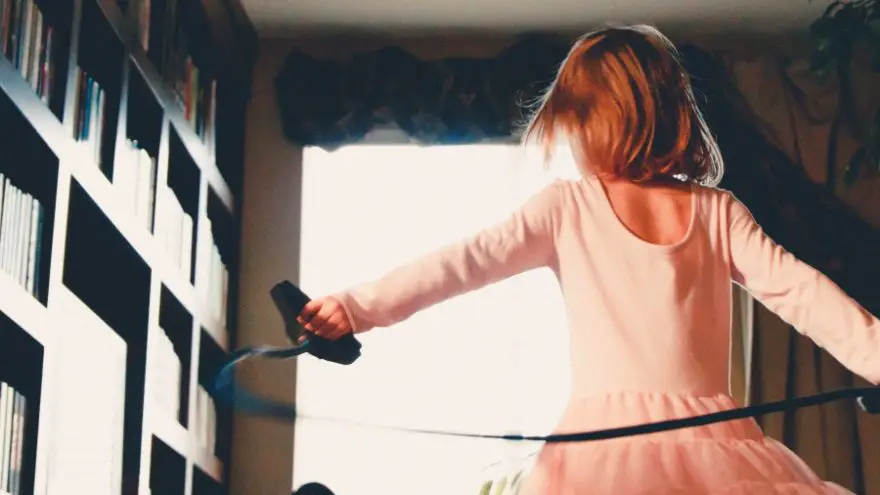How to Prep the Kids for their First Time Home Alone

As your kids grow older they will reach new milestones and be able to take on more and more independence. It can be difficult to know when it is time for certain responsibilities to be taken on such as staying home alone. Everyone knows that a small child can’t stay home alone, and an older teenager can, but the time in between those ages is harder to decide. There are a number of things to keep in mind when trying to figure out if your child is old enough to stay on their own for a while, and with time and practice, you’ll be able to make a decision.
For parents it can feel almost impossible to leave your child home alone even for a short time, such as a trip to the store or for an hour or two after school while they wait for you to get home, but it is not only a good idea to give an older, responsible child some time alone to build their confidence and skills it can also be helpful in a family when your child is too old for a babysitter and you need more flexibility.
The first thing to consider is if your child is ready to stay home alone, while a specific age is hard to give, there are some signs that you can be on the lookout for. Can your child be left unattended with you at home for a few hours without problems? If not, it’s not time yet but you can start preparing them by giving them more and more unsupervised time while you’re home just to see if they are getting closer.
In the beginning, many parents find it useful to start out with very short trips away from home, some even prefer to do a test run by staying outside for a few hours while their child is practicing being home. After you establish that they can manage on their own for a while with you very nearby, start taking short trips close to home, maybe go get a soda from the corner store and come back. Early trips should be less than 30 minutes as many children will experience anxiety the first few times you are really gone. You may need to rethink plans if the anxiety is very strong or if your child isn’t coping well with being home without you.
It is important not just to prepare your child for all the unexpected situations that may arise when they are home alone, but to prepare yourself as well. If they call you will you be able to drop everything and come to them? Will you feel confident that they are okay using the stove or other appliances in your absence if they decide to make a snack or meal? Do you have a neighbor nearby that they can trust to help them if something minor goes wrong or if they need an adult immediately?
Make sure they have everything they need like a first aid kit, fire extinguisher, weather radio, phone list of important numbers including poison control and another adult to call if they can’t reach you. If severe weather is a threat where you live to make sure they understand what to do when storms roll in, how can they get weather information, which room should they stay in, etc.
If they will be home alone during a time when they would usually eat make sure they have food they can prepare safely. Establish early on what appliances they are allowed to use and what to do if something goes wrong.
 Make sure that they know the rules on answering the phone, door, and whether or not they are allowed to have friends over when you’re not home. Set up a schedule and give them chores to do while you’re gone to help stave off boredom. If they are going to be coming home from school alone, make sure they know how to let you know they got home safely and if they are expected to have their homework done by the time you arrive. If you feel the need you can put a parental lock on the television or computer to keep them from procrastinating, but be aware that if you can’t trust them to do what you asked, they probably aren’t quite ready to fly solo yet.
Make sure that they know the rules on answering the phone, door, and whether or not they are allowed to have friends over when you’re not home. Set up a schedule and give them chores to do while you’re gone to help stave off boredom. If they are going to be coming home from school alone, make sure they know how to let you know they got home safely and if they are expected to have their homework done by the time you arrive. If you feel the need you can put a parental lock on the television or computer to keep them from procrastinating, but be aware that if you can’t trust them to do what you asked, they probably aren’t quite ready to fly solo yet.
Special considerations
Check into your local laws about leaving children at home, most areas won’t have a hard and fast age where it’s okay for all kids because children develop at different intervals, but they probably have some guidance as to what is acceptable and what is not. Usually, they want to make sure that your child is old enough to remember safety rules and big enough to react to a variety of difficult situations such as severe weather, a kitchen fire, or other sudden dangerous situation. They should be old enough to know when to call for help and how to answer questions about where they are and what is happening. They should know basic first aid and what to do if a stranger comes to the door, as well as understanding and being able to stay calm when something unexpected happens.
Make sure your child has multiple ways to contact you if there’s a problem. Relying on the wi-fi to always function isn’t a great plan if the power goes out, nor is relying solely on a cell phone as it can be lost, broken, or just need a battery charge. Come up with a plan for what to do if they are unable to reach you.
Whenever you decide to leave your child at home, remember that the anxiety and nervousness are normal for a bit on both sides of the equation, but that with time it should pass. If you have left your child alone for short trips but are still anxious about longer ones, remember that it isn’t a race, but that all good things come to those that wait. You may find that things are going fine for a time, but then your child makes a bad decision and it shakes your trust. It is okay to back up a step if you need to, so that your child will know what the expectations are and that you are there to keep them safe and healthy.






